It’s now the season for pearl harvesting, and I’ve been on the island of the pearl cultivation farm for about a week. The sorting of pearls is progressing smoothly, and the quality of the pearls is reasonably good. I have experienced being scolded by the farm manager once. It happened during the sorting of harvested pearls into grades 1, 2, and 3. Grade 1 pearls are perfectly round, with a strong luster and no blemishes. Grade 2 pearls can have small blemishes, up to one if it’s minor. I was sorting according to these rules, as usual. However, the farm manager disliked sorting strictly according to the rules from the beginning. In the initial stages, he wants to include pearls with slight blemishes in Grade 1. Sorting is repeated multiple times, so the manager wants to create a strict Grade 1 batch later in the process. I understand this well, but I wanted to expedite the sorting process by adhering to the Grade 1 rules from the start. Observing my sorting, the farm manager told me, “Your sorting is too strict! These are pearls we’ve worked our entire lives to produce! Be more careful in your selection. If you sort too strictly, Grade 1 will disappear!” I receive such reprimands twice every three years. Inside, I think, “Here we go again.” In the end, the sorting is done my way, but gradually refining it to Grade 1 through various stages is a kind of ritual, maybe even a form of consideration for the boss. Thirty minutes after giving me a stern warning, the farm manager said to me, “In the end, your sorting may prevail, but if it’s sorted so strictly from the beginning, I can’t help feeling denied of the pearls I’ve created.” I thought about various things, but respecting the feelings of the producer, as the manager said, is important. Honestly, I find it troublesome, but I believe it’s because I’m not directly involved in pearl cultivation. I want to remember not to forget this. However, we do seem to repeat similar things every year.
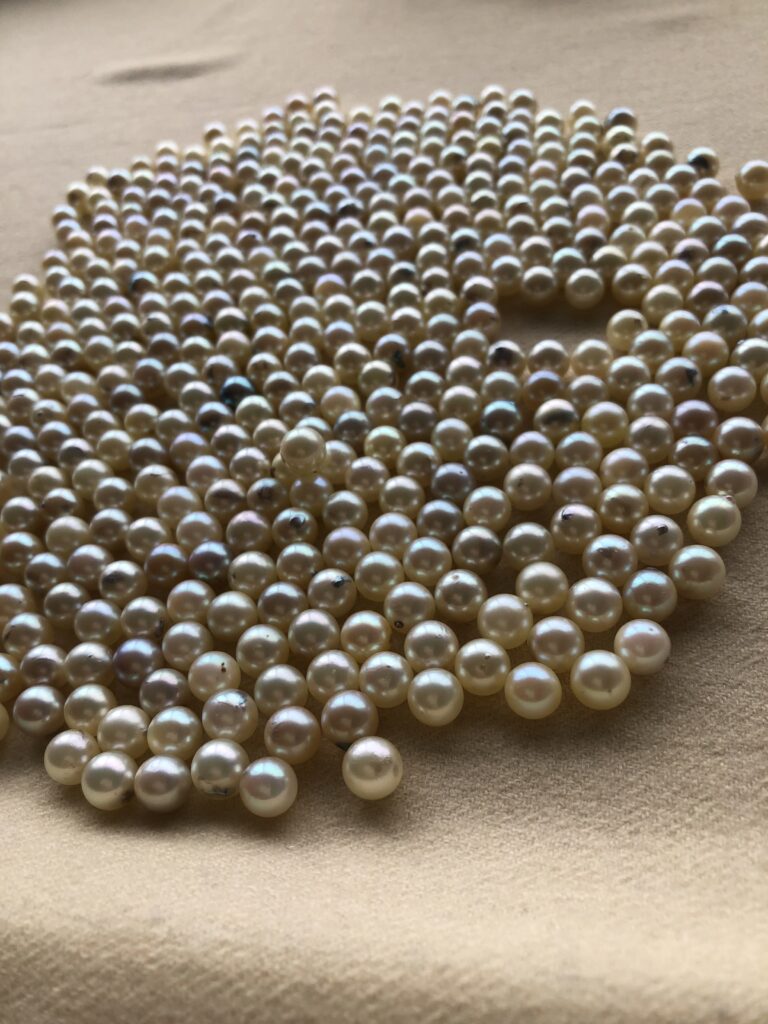
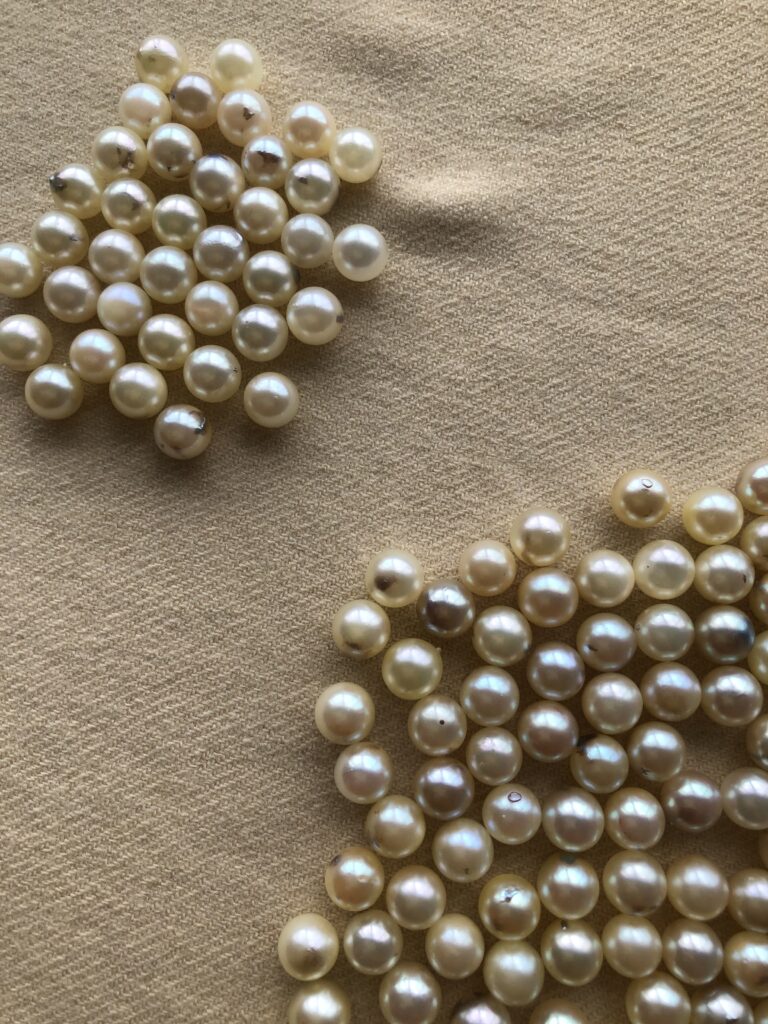
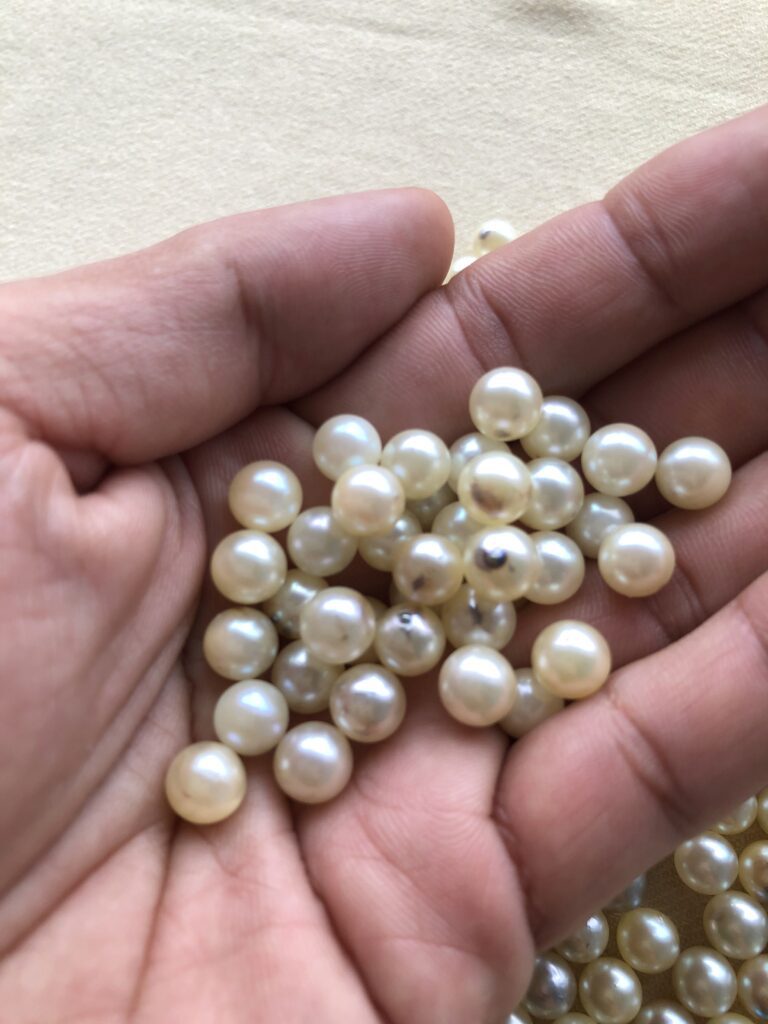
While occasional reprimands occur, generally, the farm manager and I engage in rather casual small talk during the sorting process. The manager, being fond of pachinko, often steers our conversations in that direction. I, however, do not engage in any form of gambling, making me an uninterested participant in these conversations. It’s more challenging for me to chat about topics that hold no interest for me than it is to sort pearls. For reference, I worked part-time at a pachinko parlor during my student days. At that time, pachinko part-time jobs paid about 1.6 times more per hour due to the demanding nature of the work. Over four years, working behind customers enjoying pachinko, I learned that the majarity of the money spent on pachinko go towards the operational costs of the establishment and our salaries. After graduating from university, I worked for a regular company but quit after three years. In my twenties, I decided to venture into entrepreneurship. I established companies selling dresses to women in the nightlife industry and providing horse racing information. Although I had no interest in horse racing, I was intrigued by statistics. Analyzing race results from the past three years, I devised a method to consistently win, albeit with modest profits. I conducted telemarketing using the purchased lists daily, but the monthly revenue never exceeded $1800, with phone bills alone costing $570. This was around 2006. After that, I started selling dresses. I sourced dresses alone, scheduled appointments with all nightlife venues and clubs in Tokyo and nearby cities, and sold dresses at specified times. It was an enjoyable job. As long as I secured appointments, all I had to do was display about 50 dresses in the break room of the venue on the designated day. During breaks, the women in the nightlife industry would purchase them. At that time, it was already possible to buy dresses online. However, the advantage of being able to try on dresses in person contributed to the success of my dress shop. Despite its success, a few years later, major companies started similar businesses. While I traveled on foot and by train with a large suitcase full of dresses, these large companies transported numerous dresses in big cars. My customers were quickly taken by these major companies. When customers who bought dresses from me needed alterations, I would send the dresses to my mother to have them fixed. Even then, I relied on my mother for assistance. It was regrettable that I couldn’t continue with the dress business, but I take pride in the fact that a big company copied the business idea I came up with. A few years ago, I had the opportunity to talk to an acquaintance of the president of that major company. We both confirmed that when the major company started selling dresses, they likely took cues from my work and the timing of it. While there’s a bit of disappointment, I take pride in having undertaken such a venture with no knowledge or experience, relying solely on my youth. Of course, my friends and acquaintances were stunned. The ideal path for a model Japanese person is to become an esteemed company employee. And once again, the story has deviated significantly. Yes, during the sorting process, we engage in such small talk while carefully sorting pearls. Personally, I prefer to concentrate and don’t wish to engage in conversations with anyone. However, ignoring my supervisor is not an option.
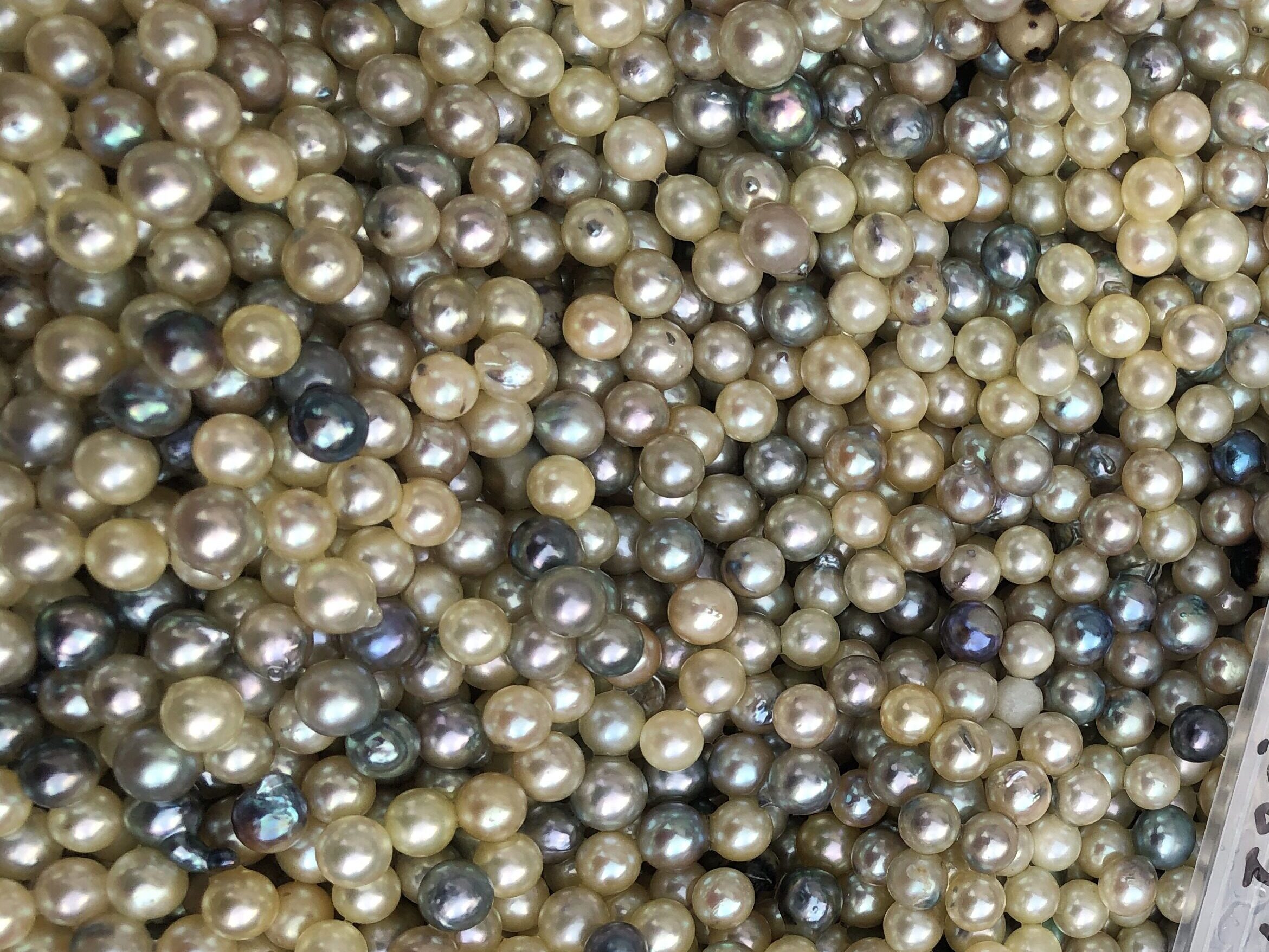
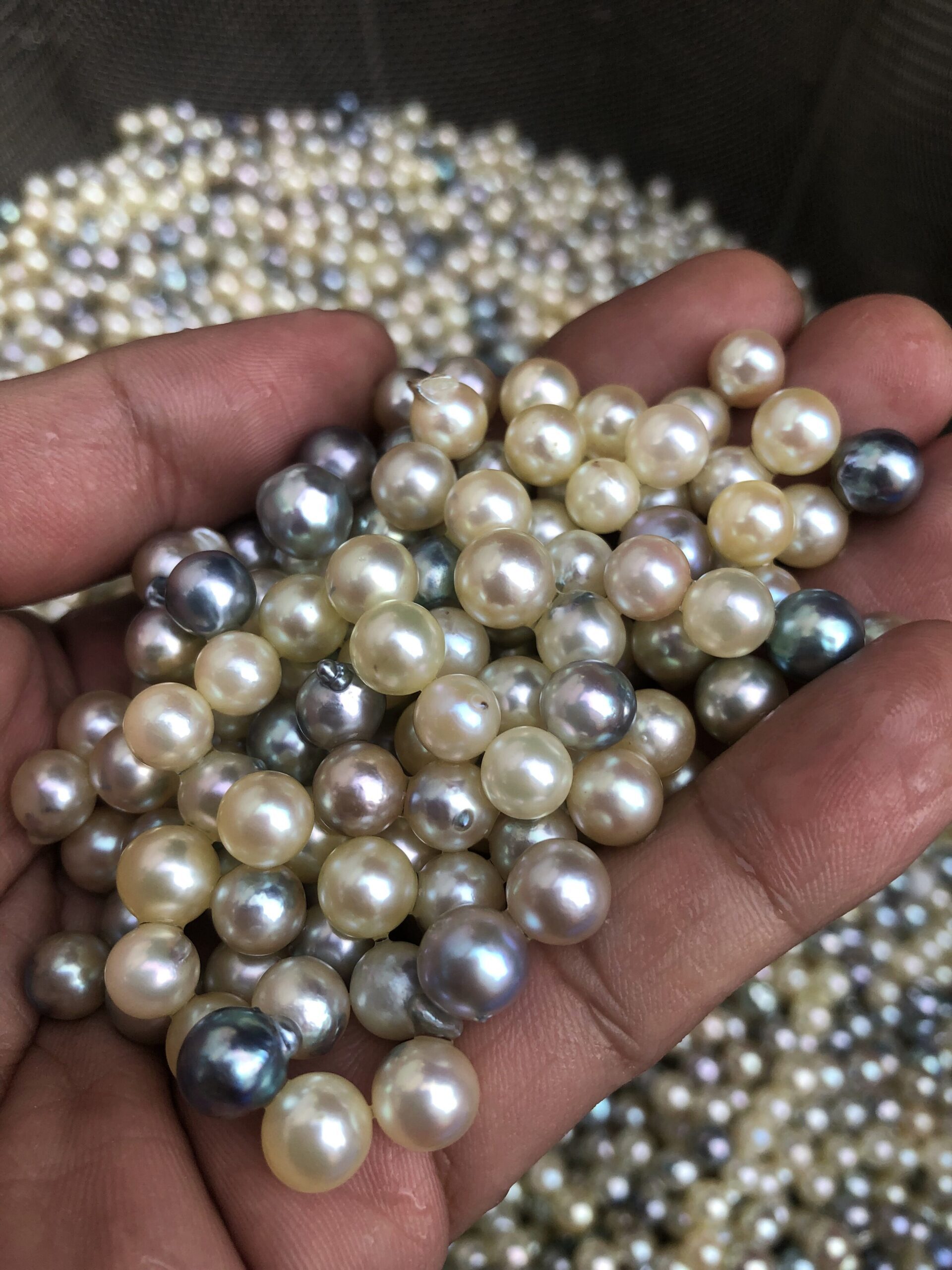
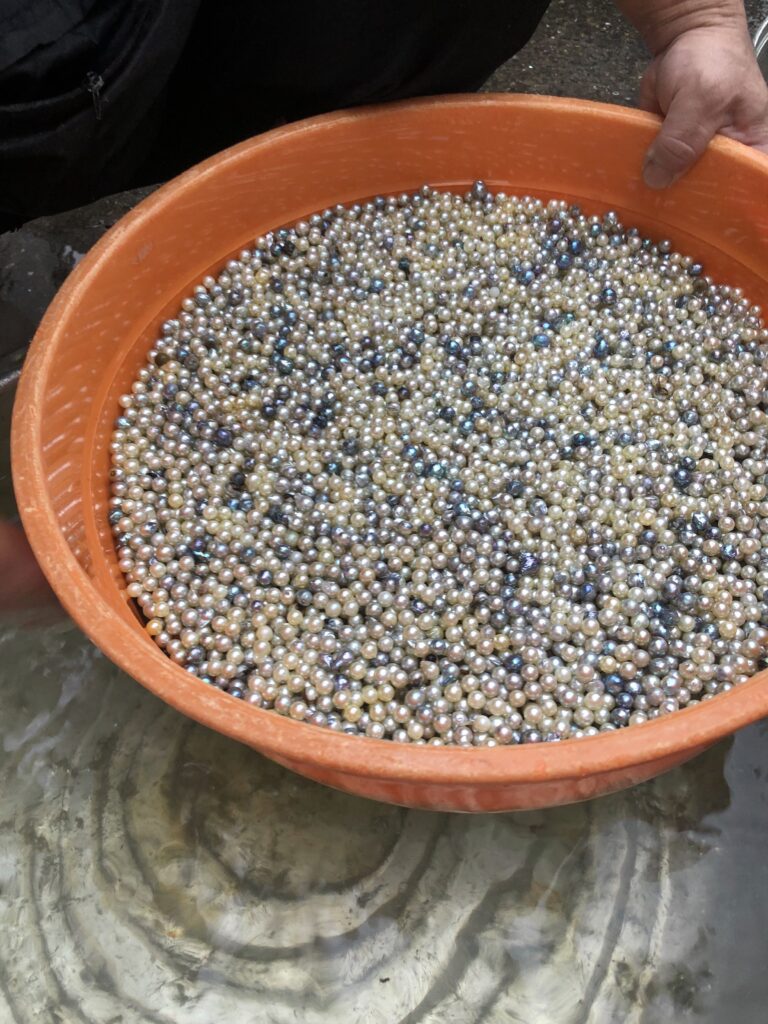
The hotel I am staying in is a vintage property. The current era in Japan is called “Reiwa.” Prior to that was the “Heisei” era, and before that was the “Showa” era. Reiwa has been around for about 5 years, Heisei lasted for approximately 32 years. The atmosphere of this hotel reflects the “Showa” era. Japanese people often use expressions like “It feels like Showa!” when referring to things or events that evoke a sense of the past, specifically more than 30 years ago. Despite being a hotel filled with the ambiance of the Showa era, there are no issues; it is simply an old-fashioned, charming hotel. Though it may be small, I, being born in the Showa era, find the atmosphere comfortable.
If you notice Japanese demonstrating something nostalgically charming or making a statement that reflects a bygone era, please say ‘Showa-ka!?’ By the way, ‘ka’ indicates a question.
This article may have had a bit of trivial content, but I wrote it based on my feelings today. By the way, there’s one more thing. In the corridor of the hotel where I am staying, there is a refrigerator with a sign that says “Beer for Sale.” On the first day of my business trip, due to the long journey, I thought, “How about having a beer today?” when I discovered this refrigerator. And when I opened it, it was empty. I found it very amusing. Since then, every day, I check the inside of the refrigerator, but so far, I have not found any beer.
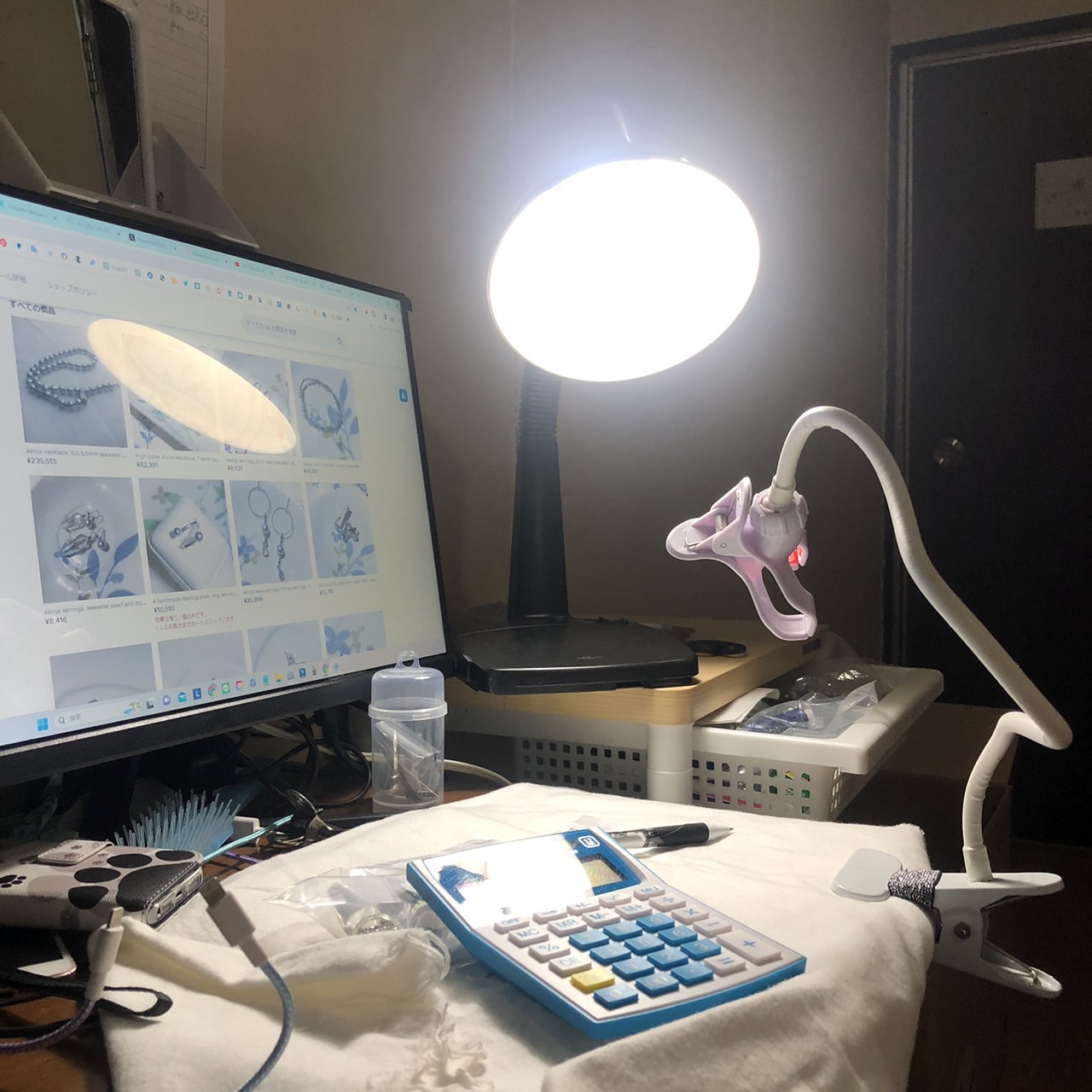
Comment